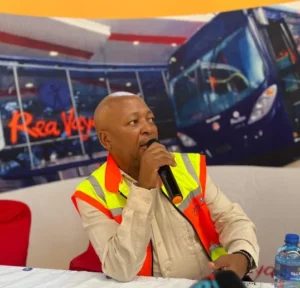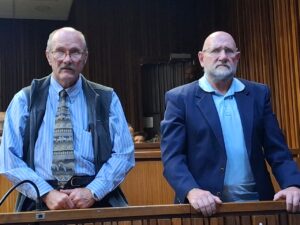By: Mphumzi Mdekazi
ANC’s Freedom Charter was the first document, throughout the world, to proclaim the right to dignity of shelter, something which long preceded what was precociously to claim that this is a natural right. It is now a universally accepted right, deeply embedded in the United Nation’s Universal Declaration of Rights, binding on all States to provide.
We as South Africans are the precursors of the proclamation of this right. Following on the tradition of the Freedom Charter, Access to (“adequate”) housing is a right very aptly captured in our Constitution and one that the current South African Minister of Human Settlement, Water and Sanitation subscribes to. Many decades later it formed part of the global policy agenda.
However, our current reality is that housing remains a global challenge as millions of people around the world still live in the most atrocious conditions and access to housing remains a challenge that sharply throws up the huge inequalities which define those that “have and the have not”. It is now generally accepted that the demand for housing will increase as urbanization and population growth persist, and South Africa is no exception in this regard. This is also the case in most vulnerable parts of the world (Africa and some parts of the Middle East that are plagued by wars is a glaring example).
The United Nations Human Settlements Programme (UN-Habitat) has estimated that the number of people living in inadequate housing will rise to 900 million by the end of 2020 world-wide. This problem is unsurprisingly concentrated in the poorest countries.
In South Africa, the General Household Survey (2018-Stats SA) reveals that approximately 2.3 million South Africans or 13.1 % of households in South Africa still live in informal settlements and is in need of adequate housing. In this context, housing finance is normally unaffordable to the low income groups.
In the International context the McKinsey Global Institute Report (2014) estimates a housing affordability gap affecting 330 million households, with 200 million households in the developing world living in slums. In South Africa significant proportions of the South African citizens do not qualify for RDP housing, and paradoxically do not earn enough to qualify for a Mortgage Bond.
It is against this background that Minister of Human Settlements (Lindiwe Sisulu) was actually a visionary by establishing a bank to provide housing loans to people in the so called “gap market”. On 19 May 2017 Minister Lindiwe Sisulu launched the Human Settlements Development Bank (HSDB), which consolidated development finance institutions from her department, namely the Development Finance Institutions (DFIs) – the National Housing Finance Corporation (NHFC); the National Urban Reconstruction and Housing Agency (NURCHA); and the Rural Housing Loan Fund (RHLF).
The operating business model of the Human Settlements Development Bank (HSDB) has already been approved by National Treasury in 2020, and the office of the State Law Advisor has already been consulted on the contents of the draft HSDB Bill and a process is underway to incorporate the comments received for consideration by cabinet. The HSDB was also mentioned in State of the Nation Address in 2020.
A process is under way to incorporate comments received, and once this process is completed, the Bill will be considered by Cabinet, where after the Bill will be tabled in Parliament. The idea of the Human Settlements Development Bank started in 2014, when the Minister of Human Settlements, Minister Lindiwe Sisulu committed herself to the establishment of a so called “Housing Bank” in support of the entire human settlements delivery value-chain.
This is a painful milestone to her detractors, but a significant progress towards the ideals of the Freedom Charter, underpinned by the ANC’s 54th Conference Resolution, which may see her becoming once again a victim of her conviction and allegiance to the broader objectives of the National Democratic Revolution (NDR), as it transpired when she implemented the ANC’s resolution on Israel while she was in the Department of International Relations. It is still a mystery why there was not even a single individual who prevailed in her defence from those who tasked her with the responsibility to implement that (Israel) resolution, ironically nobody is saying anything about that even today, an indication that such was a toy and agate resolution from that conference. Perhaps we need more Bhushiri incidents as a proof of glaring leakage in our sovereign and foreign policy regime. One is tempted to even ask; why is our revolution so weak and cheap?
To understand the South African Housing Finance Market, it is important to consider the Demographics of the South African Population. In the General Household Survey (Revised 2018 Statistics South Africa), significant discrepancies between the different populations groups in South Africa with regard to source of income exist.
These discrepancies impacts on the general access to housing finance in South Africa, specifically the low income groups. In this regard, 52.5 % of African/Blacks indicate a salary wage as source of income and 31.0% indicates a Social Grant as source of income, compared to 66.3% of White South Africans who indicates a Salary Wage and 3.2% Social Grants.
Figure 1 below shows the source of income of the different population Groups in South Africa:
Figure 1: Sources of Income by Population Group.

When affordability is considered an analysis of monthly household income in 2018, shows that 49.5% of Africans/Blacks received an income between 0 and R 3499, 16% received an income of R 3500 to R 6999, and 21.2 % received an income of R 7000 to R 19999. In other words 86.7% of Africans/blacks received an income of less than R 19999. With this figures in mind it is evident that access to housing finance, specifically in traditional housing finance markets, is limited, to specifically Africans/Blacks in the low income brackets. In contrast only 36.6 % of White South Africans fall below the income threshold of R 19999. Figure 2 shows the Monthly Household Income of the different population Groups.
Figure 2: Monthly Household Income of the different Population Groups

Against the background of Figure 1 and 2 the Human Settlements Development Bank can be considered as a step in the right direction.
In this context there are challenges in the human settlements value chain that is also exacerbated by funding issues, which together with affordability from a demographic perspective create challenges specifically for African/ Black housing finance customers, let alone the fact that Human Settlement and Water budget has been halved by the Finance Minister, opting to save SAA instead, just before local government elections. In this regard the Department of Human
Settlements is confronted with a number of challenges that includes:
● Insufficient funding for land assembly;
● Limited or fragmented funding for bulk and link infrastructure;
● Limited contractor and developer finance;
● Limited equity funding for new developers;
● Constraint Household Incomes;
● High Levels of indebtedness;
● Limited innovative end user finance.
I must emphasise that the above is by design, not accidental that there is no money for these essential services. Black people are not a priority in this country and their situation is not treated with the urgency it deserves by National Treasury. With the Human Settlements Development Bank, it is envisaged that the value chain will improve if we are lucky with regard to:
● Increase the provision of finance across the human settlements value chain;
● Enhance Integration and coherence of Human Settlements grants with other sources of funding to create scale (housing opportunities);
● Support effective transformation of the human settlements sector;
● Increase the Private Sector Leveraging Capacity;
● Remain sustainable while pursuing development objectives.
With the Human Settlements Development Bank (HSDB), access to financing will be created, while social outcomes will be maximised, ensuring a more effective housing market and reducing the cost of human settlements financing. With the 54th Conference of the ANC at NASREC in 2017 in mind, a resolution with regard to human settlements was adopted with a clear outline of the direction to eradicate past imbalances and housing insecurity in general.
This resolution specifically mentioned the implementation of housing in such a way to support black owned companies in the housing residential property sector, the transformation of urban planning and management in such a way to change apartheid spatial residential patterns, and the creation of new cities and towns by de-racialization of society.
The question is; how does R33 billion MooiKloof Housing Project linked to the 54th ANC conference resolution? It’s worth to ponder both its genesis and modalities. Furthermore, human settlements housing options must include site and service schemes, with options for people to build their own houses. With this resolution in mind the Human Settlements Development Bank can be considered as visionary, in reaching the set goals. In this regard the new Human Settlements Development Bank (HSDB) will target specific segments of the market from an affordability perspective.
Therefore, the following markets will be targeted:
● Households earning R 3500 to R 7000 per month in approved restructured Zones and Mining Towns;
● Households earning R 3500 to R 20000 per month mainly in inner cities, mining towns;
● Households earning up to R 1500 to R 15000 per month in Urban and Rural areas.
Figure 3 below shows the breakdown of the specific markets envisaged to be targeted by the Human Settlements Development Bank (HSDB).
Figure 3: Delivery Model of the Human Settlements Development Bank

When the source of income of African/Blacks is analyzed it shows that limited access to housing finance for Africans to housing finance exists.
Together with the fact 86.7% of African/Blacks received an income of less than R 19999, access to housing finance, specifically in traditional housing finance markets, is limited. In this context, the new Human Settlements Development Bank will be able to fulfill the role of service provider to the so-called “Gap Market”. The credit for this development should go to the Department of Human Settlements and specifically Minister Lindiwe Sisulu who championed this initiative from 2014.This Human Settlements Development Bank will definitely accelerate the delivery of housing across the country. This development will also change the landscape of housing in South Africa from an “apartheid spatial planning perspective” to an outlook of a nonracial society. In this regard the Minister made remarkable progress towards adequate housing and transformation of society so far.






